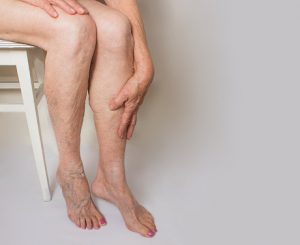 It has been one of the coldest winters we have seen in years. It’s hard to imagine warmer days, when day after day, we are hit with frigid temperatures. But rest reassured that this cold snap will end and we will begin to enjoy warmer days once more.
It has been one of the coldest winters we have seen in years. It’s hard to imagine warmer days, when day after day, we are hit with frigid temperatures. But rest reassured that this cold snap will end and we will begin to enjoy warmer days once more.
Although many of us don’t enjoy the cold, it brings along with it many health benefits, especially to those with varicose veins.
Advertisement
Varicose veins are those bulging, blue veins that run up and down a person’s legs. They can be painful, unsightly, make your legs feel heavy, and even lead to swollen legs. No one enjoys varicose veins, and aside from surgery, there isn’t too much you can do for them.
But you may have noticed during the winter that your varicose veins symptoms aren’t as severe.
This is one of the benefits of wintertime—it can help relieve varicose veins symptoms. This is because colder temperatures cause bulging veins to shrink, which allows vein valves to function better. This results in fewer cramps, reduced swelling, and less pain.
On the other hand, for some, the winter is the worst time for varicose veins as post-holiday weight gain puts added stress on your veins, worsening symptoms. Furthermore, because it’s cold outside, you are less likely to head outdoors and go to the gym, which contributes to greater weight gain. This is why it’s important that you maintain a healthy weight and not overdo it during the holidays.
Additionally, cold temperatures can result in the circulatory system working less effectively, which can further aggravate vein issues.
Advertisement
Another factor about winter that affects veins is how the cold weather affects your skin. You may not realize it, but when your skin becomes dry as a result of colder temperatures, this can cause varicose veins to itch more. Ensure you are moisturizing your skin to prevent dryness and rashes.
When possible, massage your legs and keep them elevated for at least 30 minutes to improve symptoms related to varicose veins. This will ensure you get through winter with ease. You will also want to ensure your circulation is healthy—eat healthy foods, exercise regularly, and monitor your blood pressure and cholesterol.
Related: Exercises for varicose veins: Yoga poses and exercises for varicose veins treatment
